
Cells may tell if arthritis flare-ups are coming
Rice computer scientist Vicky Yao and colleagues find unique early warning marker

Cells may tell if arthritis flare-ups are coming
Rice computer scientist Vicky Yao and colleagues find unique early warning marker

Global health students’ innovation not stopped by COVID-19
Students at Rice University and in Malawi present device designs to deal with the COVID-19 crisis during the Rice 360˚ Institute for Global Health Intern Showcase.

Rice lab helps power electric car research
Rice University researchers will contribute to a new project to make better batteries for electric vehicles.
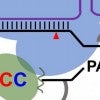
‘Bystander’ Cs meet their match in gene-editing technique
Biomolecular engineers at Rice have developed new tools to increase the accuracy of CRISPR single-base editing to treat genetic diseases.
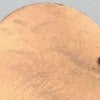
Tale of the tape: Sticky bits make better batteries
Rice University scientists use an industrial laser to turn adhesive tape into a component for safer, anode-free lithium metal batteries.

Bird droppings carry risk of antibiotic resistance
Rice University engineers analyze the droppings of urban birds and show persistent levels of antibiotic-resistant genes and bacteria that may be transferred to humans through the environment.
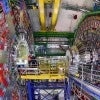
Rice physicists win grant to continue Higgs study
Rice physicists win $1.3 million in Department of Energy funding to pursue ongoing research at the Large Hadron Collider.

Future Texas hurricanes: Fast like Ike or slow like Harvey?
Climate change will make fast-moving storms more likely in late 21st-century Texas.
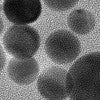
Charcoal a weapon to fight superoxide-induced disease, injury
Artificial enzymes made of treated charcoal could have the power to curtail damaging levels of superoxides that appear after an injury.
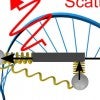
Cartwheeling light reveals new optical phenomenon
Researchers at Rice University have discovered details about a novel type of polarized light-matter interaction with light that literally turns end over end as it propagates from a source.

Study finds new link between Alzheimer’s suspects
Researchers have described for the first time specific genes and pathways in the brain associated with Alzheimer’s disease.
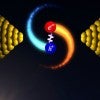
Rice lab’s bright idea is pure gold
Physicists discover plasmonic metals can produce “hot carriers” that emit unexpectedly bright light in nanoscale gaps between electrodes.

Rice shares grant for AI-driven COVID-19 research
Todd Treangen received a C3.ai Digital Transformation Institute Award for computational biology research to apply AI models to COVID-19 mitigation.

Tour scores prestigious Centenary Prize
Rice University chemist James Tour has been named a winner of this year’s Royal Society of Chemistry Centenary Prize.
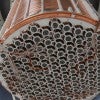
Dark matter search turns up hint of mysterious particle
XENON1T scientists revealed they had detected excess — perhaps cosmic — particles that may be evidence of long-sought axions.